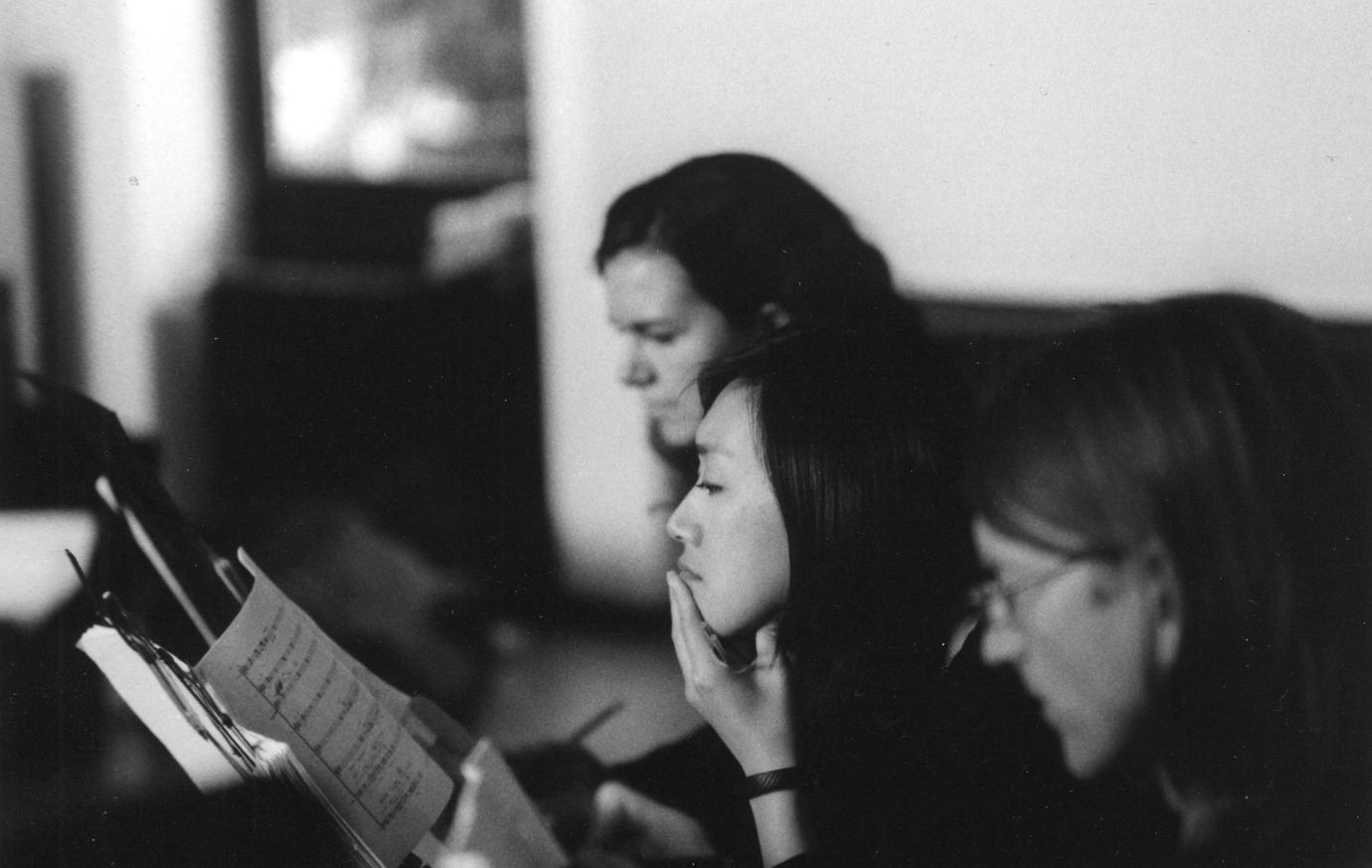Madrigal Network

In 2009 the intensive engagement of Walter Nußbaum and SCHOLA HEIDELBERG with Don Carlo Gesualdo di Venosa and other Renaissance composers culminated in the “Madrigal Network” project.
The musical expression of affects in melody and harmony is a characteristic of the Italian Renaissance and has a major hand in the emergence of the dramatic vocal solos familiar to us from later operas, oratorios and cantatas. In the project and the works commissioned from 19 composers, the original madrigals were transported into the present and showcased in new and sophisticated ways by the addition of introductory sections and intermezzi.
In the works of Gesualdo, Marenzio, Michelangelo Rossi and their contemporaries, we find a handling of keys, intonation and intervals (19-step octave, use of the cembalo universale, etc.) that display remarkable parallels with contemporary composing techniques (microtonality, etc.) and with the tonal systems of ancient and non-European musical cultures in, say, Bulgaria and Vietnam.
Performed here for the first time, the works commissioned from Willem Boogman, Stefano Gervasoni, Karin Haußmann, Joachim Heintz, Alberto Hortiguëla, Matthias Kaul, Sven-Ingo Koch, Jan Kopp, Bernhard Lang, Uwe Lohrmann, Martin Messmer, Wolfgang Motz, Naomi Pinnock, Steffen Schleiermacher, Cornelius Schwehr, Jakub Sarwas, Martin Smolka, Christian Utz and Caspar Johannes Walter enrich the traditional madrigal genre with forward-looking elements. At the same time, they paraphrase and represent general psychological processes. The internal musical logic enables the present to be a reflection of/on what we think of as the past.
The specific challenge faced here by KlangForum Heidelberg, its ensembles and the participating composers is a formal one that invariably dogs concert performances of madrigals. The succession of highly concentrated forms lasting only three to five minutes very often results in audience fatigue. The new madrigal cycles in the present programme with their carefully conceived, through-composed structures provide new concert settings for these works without reducing them to the status of mere source material.
Madrigal texts frequently dwell upon subjects like desire, pleasure and loss carefully concealed behind metaphorical disguises. The circumscription of sexual orgasm as death (piccola morte) is one of the main topoi taken up and highlighted by the hypertrophic, highly mannered harmonic complexion of madrigals by Gesualdo, Marenzio or Rossi. The brusque “modern” nature of the harmonic shifts encountered in these works make them a challenge for interpreters and an inspiration for composers.
With newly composed linking or contrasting “transitions”, “Madrigal Network” avails itself of a modern ensemble of vocal, instrumental and electronic forces. On the musical, dramaturgical, socio-historical and technical plane, there are countless ways in which they can be integrated and countless opportunities for mutual comment, one of these being to take the microtonal consequences of highly chromatic intonation in Gesualdo through to their logical conclusion by way of extended tonal systems, e.g. quintuple-tone partition (31-fold subdivision of the octave, archicembalo).
The new compositions also transpose the texts set by the madrigalists into the present, as for example in the texts of Heidelberg poet Hans Thill set by Karin Haußmann. The material assembled so far by the “Madrigal Network” is made up of the works first performed at the Baden-Württemburg Summer of Literature in 2012, the 20th anniversary celebrations of KlangForum Heidelberg and a concert in 2013.
Thematically, contemporary composers continue to draw upon madrigals and their potential connectivity, notably in the Prinzhorn Project and in Niklas Seidl’s commissioned work Maderijåal (first performed 2014).
Another instance of the inspiration emanating from the “Madrigal Network” was the first performance at the 2017 Schwetzingen Festival of Caspar Johannes Walter’s Zwischenspiele (Interludes) for microtonal organ interspersed between madrigals by Gesualdo, Marenzio, Gabrieli, Rossi and Hassler.